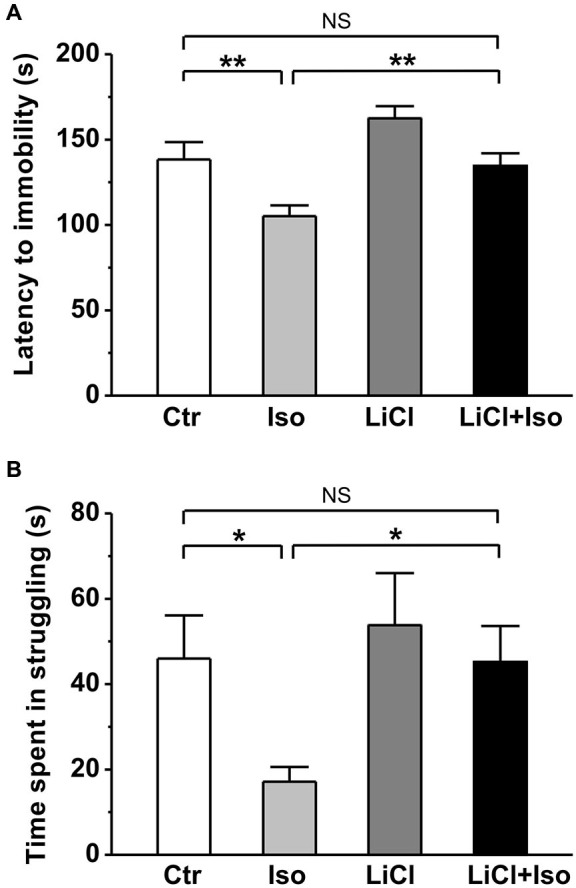Figure 5.

Lithium reduces depressive-like behavior in neonatal isolation rats. In forced swimming paradigm, both latency to immobility (A) and struggling time during the last 4 min (B) are significantly reduced in isolated rats compared to control, and lithium treatment recovers the impairment. Two-way ANOVA analysis was used in this experiment. For latency to immobility: treatment × drug, F(1, 95) = 9.779 P < 0.05; treatment, F(1, 95) = 19.003, P < 0.05; drug, F(1, 95) = 3.473, P > 0.05. For time in struggling: treatment × drug, F(1, 95) = 1.178, P > 0.05; treatment, F(1, 95) = 3.968, P < 0.05; drug, F(1, 95) = 3.648, P > 0.05. Data show mean ± SEM (*p < 0.05; **p < 0.01).
